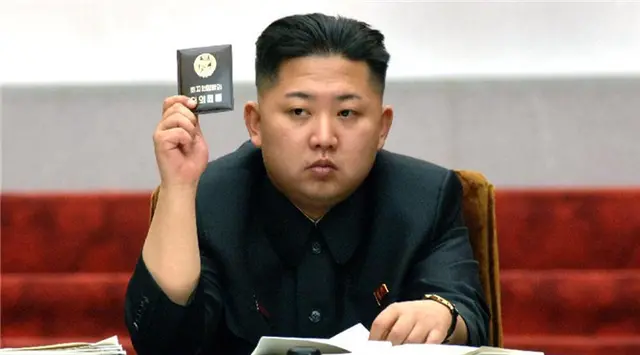The United States and its two Asian allies moved Wednesday to widen their sanctions against the Democratic People's Republic of Korea (DPRK) in response to the latter's satellite launch.
The U.S. Senate on Wednesday unanimously passed a bill to impose harsher sanctions against the DPRK after Pyongyang conducted its fourth nuclear test and launched a satellite into orbit in the past two months.
The bill expands and tightens enforcement of sanctions against the DPRK's nuclear and ballistic missile development and other destructive activities, said Democratic Senator Robert Menendez.
It would require U.S. President Barack Obama to punish anyone involved with the DPRK's nuclear weapons program, arms-related materials, luxury goods, human rights abuses, activities that negatively impact cybersecurity and the use of coal or metals in any of the activities.
Penalties would include the seizure of assets, visa bans and denial of government contracts.
"It ... leaves no doubt about our determination to neutralize any threat with robust, realistic diplomacy to reach the clear goal of a denuclearized Korean Peninsula," said Menendez. "It is time now for the United States to take the North Korea challenge seriously."
Also on Wednesday, South Korea announced a plan to completely stop operations at a jointly run factory park with the DPRK.
The decision ended the last remaining symbol of inter-Korean economic cooperation, which Seoul saw as a key source of cash to advance Pyongyang's nuclear and missile technology.
Unification Minister Hong Yong-Pyo told a televised press briefing that the DPRK conducted extremist provocations in defiance of repeated warnings from the international community.
Calling recent provocations as an intolerable act and a challenge to peace and stability on the Korean Peninsula and the world, Hong said Pyongyang has never shown intention to give up its nuclear and missile programs.
Hong also expressed concern that the DPRK' nuclear development may lead to a "nuclear domino" in the region.
The Japanese government on Wednesday decided to impose new sanctions and reinstate some restrictions lifted in 2014 against the DPRK.
The new sanctions include banning the re-entry from the DPRK of Japan-based foreign nuclear or missile engineers, banning ships from third countries that have visited ports in the DPRK, as well as banning remittances of over 100,000 yen (about 870 U.S. dollars) to the DPRK in principle, except for humanitarian cases.
Missile defense opposed
The United States and South Korea have threatened to deploy Lockheed Martin's Terminal High Altitude Area Defense (THAAD) missile defense system in the Korean Peninsula, which, however, triggered serious concerns from Russia and China.
The Russian Foreign Ministry warned Wednesday that Washington's deployment of a U.S. missile defense system to South Korea could spark an arms race in the region.
The Russian ministry said in an online statement the action of the DPRK was used by Washington to expand the deployment range of the U.S. global missile defense system.
"The emergence of elements of the U.S. global missile defense system in the region, characterized by a rather difficult security situation, could provoke an arms race in Northeast Asia and will further complicate the solution to the nuclear issue on the Korean Peninsula," the statement said.
"This step could only enhance the destructive impact of the U.S. global missile defense system on international security and strategic stability," it added.
Accusing the DPRK of disregard for international law, the ministry called for creating a comprehensive peace system in Northeast Asia that would take into account the security interests of all regional countries.
"We hope that Washington and Seoul will contemplate the possible consequences that can result from such developments and draw appropriate conclusions," the ministry said.
Earlier in the day, head of the Russian Foreign Ministry's security and disarmament department Mikhail Ulyanov also said the deployment of the U.S. missile defense system, as well as the current developing trend of events, would benefit neither Pyongyang nor Seoul.
Meanwhile, Ulyanov warned that Washington is developing air defense systems that could in the future influence Russia's capability in providing nuclear restraint.
China, as a key regional stakeholder, also expressed deep concerns over the proposed THAAD deployment, which it said could worsen the already fragile situation in Northeast Asia.
"China holds a consistent and clear stance on the anti-missile issue," Chinese Foreign Ministry spokesperson Hua Chunying said Sunday. "When pursuing its own security, one country should not impair others' security interests."
 简体中文
简体中文

